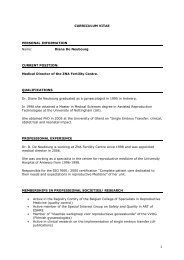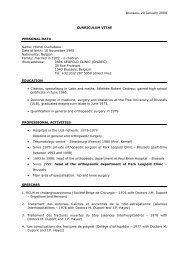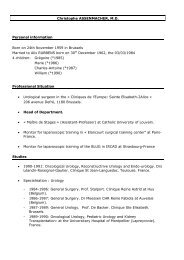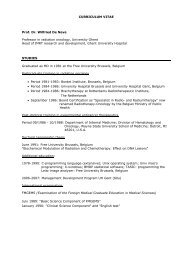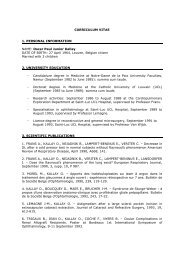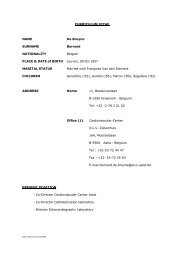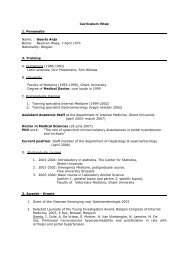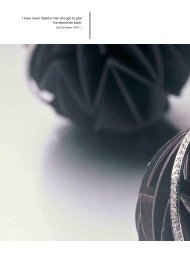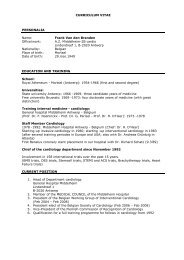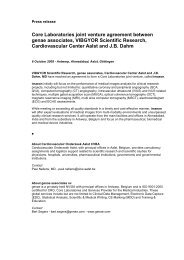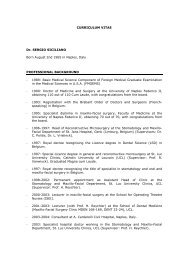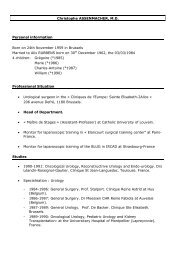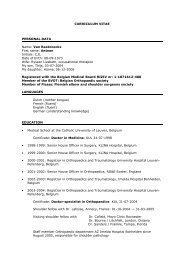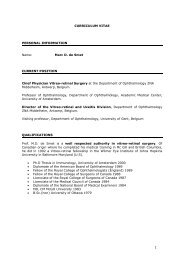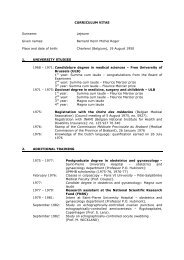Download PDF - HealthCare Belgium
Download PDF - HealthCare Belgium
Download PDF - HealthCare Belgium
You also want an ePaper? Increase the reach of your titles
YUMPU automatically turns print PDFs into web optimized ePapers that Google loves.
EGG DONATION<br />
Egg donation offers the only chance of conception for a woman<br />
who produces too few or no eggs, or eggs that are unsuitable for<br />
genetic reasons. Sperm supplied by her partner (the ‘recipient man’)<br />
are injected directly into the eggs donated by another woman to<br />
inseminate them (a technique known as ICSI).<br />
If this in vitro fertilization produces a number of embryos, one<br />
or two will be transferred to the woman’s womb, where they can<br />
implant and grow to full term.<br />
The CRG has four egg donation formulas: partial donation (known<br />
as ‘egg sharing’), named donation and exchange donation. Those<br />
last two formulas apply to couples who can present a donor<br />
themselves; the first one to couples who don’t/can’t do that. The<br />
latter automatically land in the waiting list donation system as<br />
candidate acceptor, where they – apart from egg sharing – can<br />
appeal on voluntary anonymous donation (which is the fourth<br />
formula).<br />
RECRUITMENT<br />
We have reviewed the general conditions to which donors must<br />
conform previously (see p. 95-96). One of these is that the<br />
maximum age for egg donors is 35. Exceptions to this rule are only<br />
made in certain cases of named donation and with the recipient<br />
DONATION<br />
99



